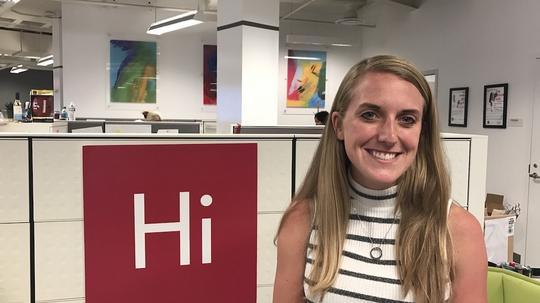
Think a minute about the way you get information. If you are liberal, you're likely to watch CNN. If you're conservative, you're likely to watch Fox News. Now, think of your Facebook timeline; chances are high that you're commenting on articles that reflect your convictions and that your Facebook friends agree with you.
Experts have a formal definition for such a situation. They call it "echo chamber," as a metaphor to indicate how ideas get reinforced by repetition in a likely-minded context. Laura Carpenter, founder of Harvard startup Abridge News (formerly Moderator), is familiar with the concept and has a simpler way to put it: "Nobody wants to admit that they're getting news from a bubble."
Carpenter realized that things had gotten too far during the 2016 electoral cycle, when Trump supporters had come to a point they couldn't even discuss politics with Clinton supporters and the other way around. Regardless of political convictions, she felt that no one was taking the time to empathize with the other side.
To address the lack of communication between people on different sides of the political spectrum, she and her longtime friend and classmate at Georgia Tech David Byas-Smith created Abridge News, a website - still in beta version - where readers can find balanced summaries of selected opinions on a variety of topics.
Here's how it works. Every day, Carpenter selects a broad topic Americans are discussing, from Chicago's soda tax to the bidding war for Amazon's second headquarter. Them, she scans the web looking for op-eds - published on reliable sources, including The New York Times and the Washington Times - with unique strong arguments on each topic. Four op-eds are selected, one that's categorized as strongly liberal, one that's considered strongly conservative and two in the middle.
"We're not trying to be unbiased. We're trying to be balanced."
Then, Carpenter provides a link to the original source and summarizes each op-ed in three bullet points; as a result, readers can quickly get access to a variety of supporting facts crossing the whole political spectrum for each idea. Ideally, this method should eventually "bridge the political divide," as Carpenter said, by getting people to read the other side's arguments.
Based in the Harvard Innovation Lab, the startup is currently bootstrapping and exploring three different ways to make revenue: adding advertising to the website, selling data about readers to third parties or a subscription model for readers.
Currently, the site publishes a topic summary a day, but Carpenter said that she wants to hire more writers to get the site updated three times a day.
"We're not trying to be unbiased," Carpenter said. "We're trying to be balanced."








